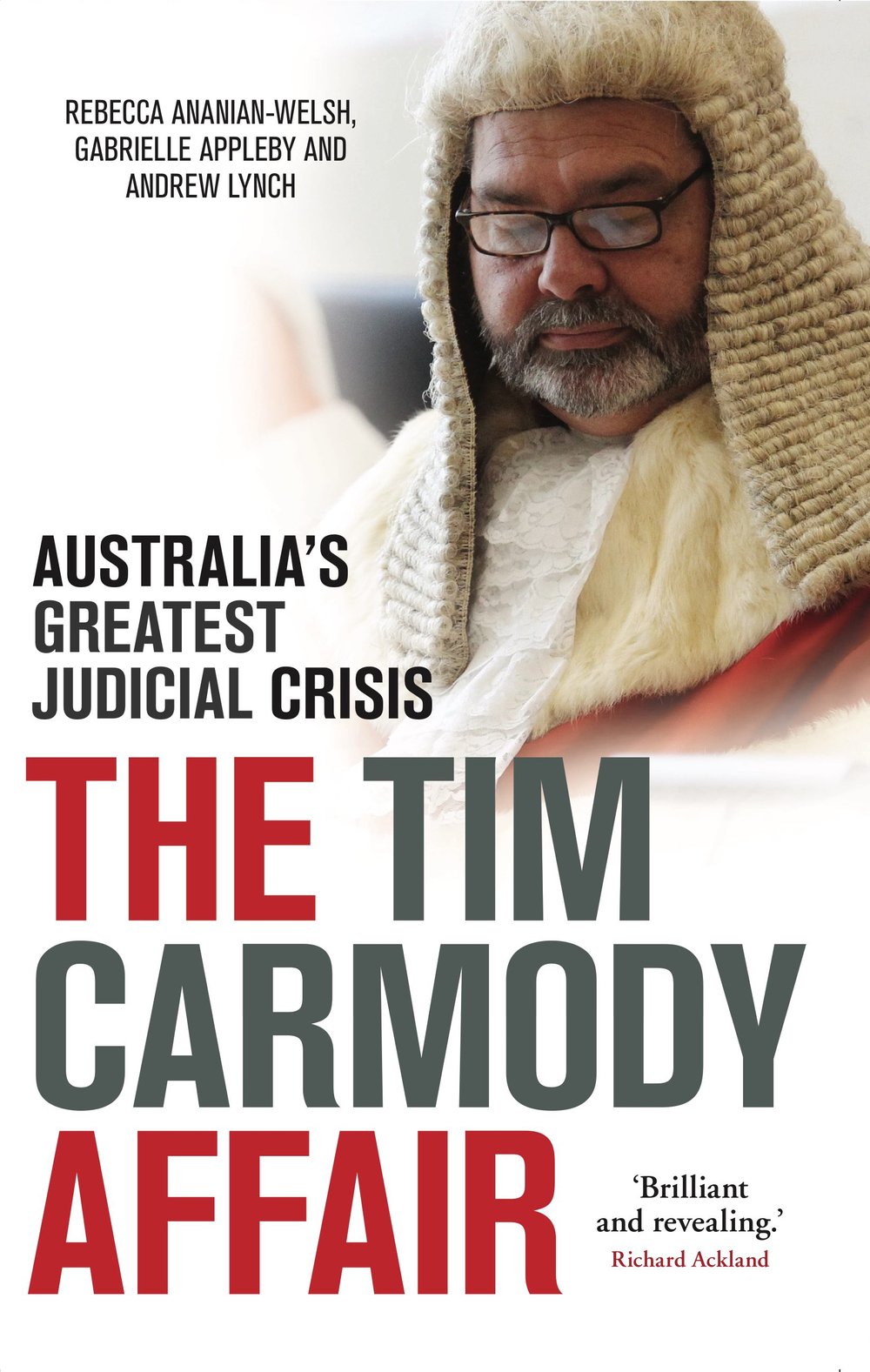In July 2015 Tim Carmody resigned as Chief Justice of Queensland just 51 weeks after being sworn into the office. It had been a tumultuous 12 months, to say the least. Rebecca Ananian-Welsh, Gabrielle Appleby and Andrew Lynch tell the story of his divisive tenure in Queensland's top judicial job.
Tim Carmody’s appointment as Chief Justice by then-premier Campbell Newman rocked the community, drawing public criticism from senior and respected lawyers and judges. While many praised Carmody as a personable and likable man, some brutal assessments were made as to whether he had the legal acumen or professional respect necessary to fill the top job. Some even alleged that Carmody’s appointment was a political reward for his enthusiastic public support for Campbell Newman’s wide-ranging anti-bikie laws.
What followed was the most public and comprehensive deterioration in relations between judges that Australia has ever seen. Reflecting on the damage, Campbell Newman eventually admitted that he regretted this decision more than any other in his 13-year political career.
Carmody’s public welcoming ceremony was boycotted by the Supreme Court judges. In response to his critics, Carmody hit the airwaves in an unprecedented attempt to promote and defend himself as independent and competent – but to no avail.
In coming months relations between the judges sank so low that one secretly recorded a private conversation with Carmody. Carmody attempted to sack that judge from a senior position within the court. When there was the chance that a case would arise concerning Queensland election results, the Chief Justice appeared ready to defy a protocol that would ensure the impartial selection of judges to decide that case. When one of Australia’s most high-profile murder cases was impacted by allegations of perceived bias against Carmody, a heated email exchange ensued in which a senior judge refused to sit with Carmody in any future cases.
Carmody declared, ‘With apologies to Gloria Gaynor … I will survive’. But eventually he took the remarkable step of announcing his intention to resign to a national newspaper, and his decision was considered front-page news. On 2 July 2015, his tenure as Chief Justice ended.
Remarkably, a large amount of material relating to this saga has found its way into the public arena – either in response to freedom of information requests, or by Carmody himself. But there are some things that Carmody is fighting to keep secret.
After resigning, Carmody took up he took up a one-year position on the Queensland Civil and Administrative Tribunal (QCAT). He is also a party to proceedings in QCAT, and is – along with the Queensland Government – resisting tooth and nail the Information Commissioner’s decision to release the secret phone recording of Carmody allegedly calling his judicial colleagues ‘scum’. A New South Wales judge has been brought in to hear that case and decide whether the recording should be released. Meanwhile, the judge responsible for recording the conversation is under police investigation for that action.
Carmody’s current position on QCAT came about as one of the conditions he made upon his resignation from the Chief Justiceship. At the time, it seemed a neat solution but relief from tension can only be temporary. Soon he faces the prospect of returning to work with his colleagues on the Supreme Court. But Carmody had turned his mind to this when he planned his resignation. Another of the conditions on which he resigned was that he would be given ‘favourable consideration’ when the time came for the government to appoint a newp of QCAT. That post is due to be filled on 22 October this year.
The elevation of Carmody to this role could easily reignite the controversy. It would risk the appearance that Carmody had successfully negotiated an appointment to yet another senior legal role. But – like all appointments – the QCAT presidency ought to be decided based on merit and suitability.
Carmody’s brief tenure as Chief Justice was filled with an unprecedented level of controversy and acrimony. The saga provides a startlingly public and comprehensive demonstration of the failings in the regulation of the judicial branch of government – from appointments, to misconduct and bias, to resignation. There are important lessons to learn from the Tim Carmody Affair, lessons that must be learned quickly if history isn’t going to repeat itself.
* * * *
The Tim Carmody Affair: Australia’s greatest judicial crisis by Rebecca Ananian-Welsh, Gabrielle Appleby and Andrew Lynch is the story of Tim Carmody’s tenure as Chief Justice of Queensland (published by NewSouth, September 2016).
